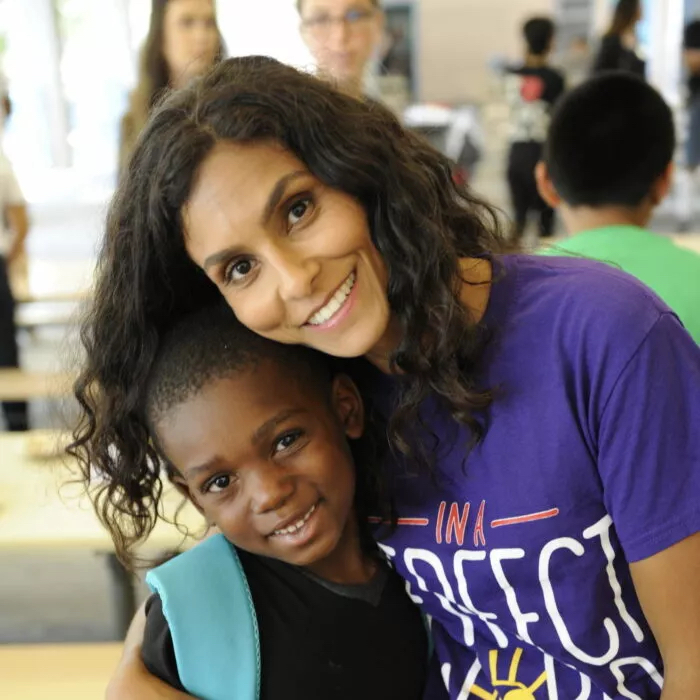
I’m Manuela Testolini, Founder & President of In a Perfect World, a youth development organization. At IAPW, we believe the most impactful programs not only teach young people to manage their emotions and build healthy relationships but also empower them to step into leadership roles. A key part of fostering that leadership is involving youth directly in the evaluation process.
Hot Tips
Youth Voice is Key to Program Impact
Traditional evaluations—tracking attendance, participation, and survey results—only tell part of the story. Could we do more to prepare youth for leadership in their schools and communities? Are we truly meeting their needs?
Since youth experience our programs firsthand, their feedback is essential. Actively involving them in evaluations has been transformative. Hearing from young people about how a program helped them develop self-awareness or take initiative provides insights beyond a Likert Scale. Their feedback shows us how our programs shape both their emotional well-being and leadership potential, helping us innovate and refine our approach when needed.
Cultivating Skills Through Self-Awareness and Reflection

Youth-led evaluations not only enhance our programs but also foster leadership skills. When we ask young people for their input, we invite them to develop critical thinking, self-confidence, and decision-making abilities. Many evolve into program advocates, encouraging their peers to engage more fully and even leading activities.
As youth reflect on their personal growth, they’re building the skills we aim to foster. For example, one young person shared how learning to manage anxiety gave them the confidence to lead a team. This blend of social-emotional learning and leadership development is central to our mission, and youth-led evaluations strengthen that synergy.
Ownership Leads to Leadership
By involving youth in evaluations, we give them ownership over their development. They become partners in shaping their growth, not just participants. When they see their opinions drive change, they feel empowered to take on more responsibility, in our programs and other areas of their lives.
For instance, one reserved participant gave feedback that helped us improve team dynamics, and soon after, she stepped into a leadership role. Knowing their voices are valued builds trust, fostering a culture where youth see themselves as leaders and we, as staff, become mentors supporting their journey.
Strengthening Accountability and Building Future Leaders
Youth feedback makes our programs more accountable. It helps us identify areas for improvement and offers practical solutions. For example, one participant suggested smaller breakout groups during discussions to encourage more engagement. After implementing the change, participation increased, leading to richer discussions and a stronger sense of community.
This feedback loop not only improves the program but also helps young people build leadership skills like communication, collaboration, and self-reflection. These are the qualities that future leaders will need to drive change in their communities and the world.
Lesson Learned: Listen to Lead
Incorporating youth voice in evaluations has transformed the way I lead our organization. Listening to young people allows us to innovate, improve our programs, and cultivate the next generation of leaders. Their insights keep us grounded in their needs and empower them to step confidently into leadership roles.
Together, we’re building programs that support emotional growth and leadership, preparing youth to thrive and make a lasting difference in their communities. The key to that transformation? Simply listening—and trusting—that young people hold the answers to their own growth.
Rad Resource
Developed in partnership with the Annie E. Casey Foundation, this Youth Engagement Guide by UCLA’s Center for the Developing Adolescent offers practical insights for including youth in research and evaluation.
Do you have questions, concerns, kudos, or content to extend this aea365 contribution? Please add them in the comments section for this post on the aea365 webpage so that we may enrich our community of practice. Would you like to submit an aea365 Tip? Please send a note of interest to aea365@eval.org . aea365 is sponsored by the American Evaluation Association and provides a Tip-a-Day by and for evaluators. The views and opinions expressed on the AEA365 blog are solely those of the original authors and other contributors. These views and opinions do not necessarily represent those of the American Evaluation Association, and/or any/all contributors to this site.
